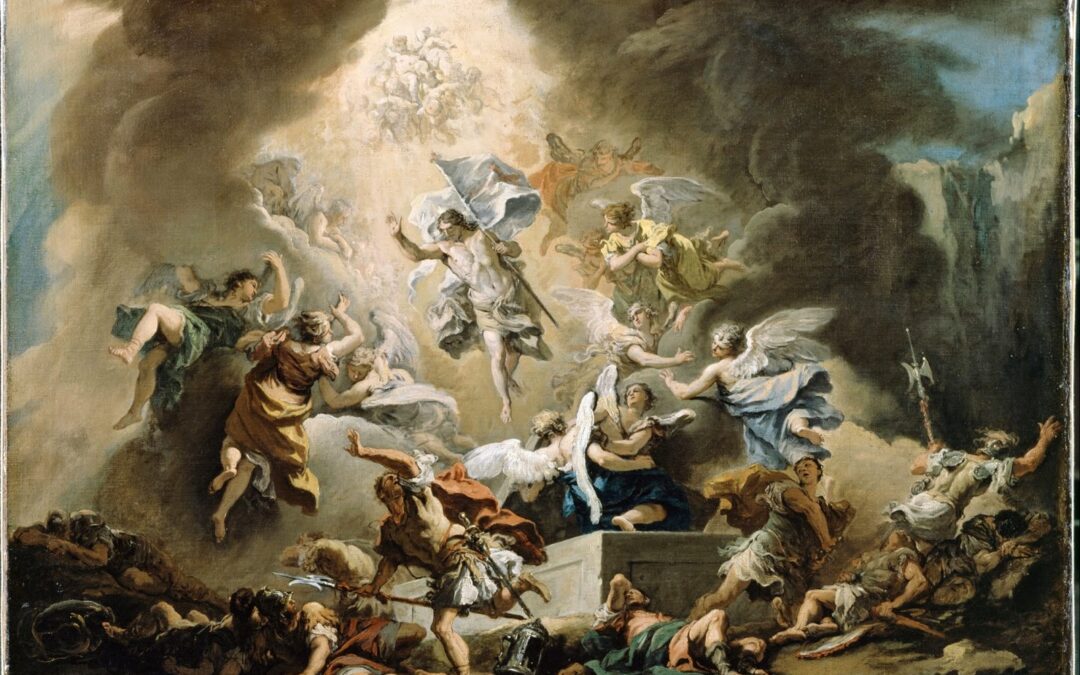A Study of Revelation 20 and other related passages
The Millennium is a thousand years of peace that Christians like to fight about
Anonymous
I used to be a panmillennialist–the details escape me, but it will all pan out in the end. Before that I was a premillennial dispensationalist–lots of crazy stuff is promised to happen, but it will happen to Israel and I will be out of here before it all comes crashing down. When I began preaching weekly as a seminarian and pastoral intern almost 20 years ago, I quickly learned that one must make definitive interpretations on any number of eschatological questions. Expositional preaching will exorcise the panmillennialist equivocations from the pastoral soul.
When teaching through 1 Corinthians several years ago I came upon a refreshingly clear and encouraging passage:
But now Christ is risen from the dead, and has become the firstfruits of those who have fallen asleep. For since by man came death, by Man also came the resurrection of the dead. For as in Adam all die, even so in Christ all shall be made alive. But each one in his own order: Christ the firstfruits, afterward those who are Christ’s at His coming. Then comes the end, when He delivers the kingdom to God the Father, when He puts an end to all rule and all authority and power. For He must reign till He has put all enemies under His feet. The last enemy that will be destroyed is death.
1 Corinthians 15:20-26 (NKJV)
I realized that this program so clearly laid out by Paul, as an argument for the resurrection and a comfort to Christians, did not fit with the last-things program I had in my head. I admitted to my Sunday School class that I had not done my due diligence in studying this subject matter, but that I would make a go of it and start an eschatology project soon. Beginning with the Olivet Discourse (Matthew 24; Mark 13; Luke 17 & 20), I found Jesus’ explanations and instructions to be comforting and hopeful. I was also left with lots of new questions I had never asked before. This led into special studies into established Old Testament Judgment metaphors, the Kingdom parables, 1 & 2 Thessalonians, and eventually teaching through Revelation and preaching through Daniel. A couple of weeks ago I led an Eschatology workshop at our church and over the course of four sessions, attempted to answer whether or not we are living in the last days. Years of study produced a bit of a whirlwind tour which left several questions unanswered. One of those I’d like to deal with in a series of short blog posts.
Are there two Resurrections?
I would like to begin this series by simply stating the initial parameters of the Biblical concern. Folks like me (i.e. fundamentalists), not only believe in the inerrancy, infallibility, clarity and sufficiency of scripture, but we are willing to part ways with those who do not believe this or other cardinal doctrines essential to the Faith. Conversations about these matters can therefore feel awfully high-stakes. But if we are truly sitting at the same table by the same grace of the same Lord, let us have patience with one another and talk about these end-time questions which arise throughout the Bible.
The Apostle John wrote both the Gospel of John and the Revelation of Jesus Christ. The Holy Spirit Who bore Matthew along in his writing of his Gospel superintending the truth of each word, is the same Holy Spirit Who bore Paul along in his writing of every word to the Romans, Corinthians and Thessalonians. These fundamental presuppositions lead folks like me to anticipate harmony, indeed, unity in the passages describing the resurrection. Why then do some passages speak of a single resurrection/judgment event for both the saved and the damned (Matthew 13:24-30, 36-43, 47-50; 25:14-46; John 5:21-30; Acts 26:15), and other passages speak of different resurrection/judgment experiences, sometimes only the saved (2 Corinthians 5:1-11; Romans 14:1-13; 1 Thessalonians 4:13-18), sometimes only the damned (Revelation 20:11-15).
Exploring this apparent contradiction will be part of my plan as well as explaining Revelation 20 verse by verse from a partial preterist, postmillennial, fundamentalist point of view. Revelation 20 has sometimes been overly focused on as it is the only passage which describes the reign of Christ as “a thousand years.” But it also speaks of the binding of Satan, the reigning of the saints, the first resurrection (assuming a second), the second death (assuming a first), Gog and Magog warfare, the final end of the devil, a great white throne, the Book of life, and the end of death itself. Exciting stuff! Hope-filled stuff.

